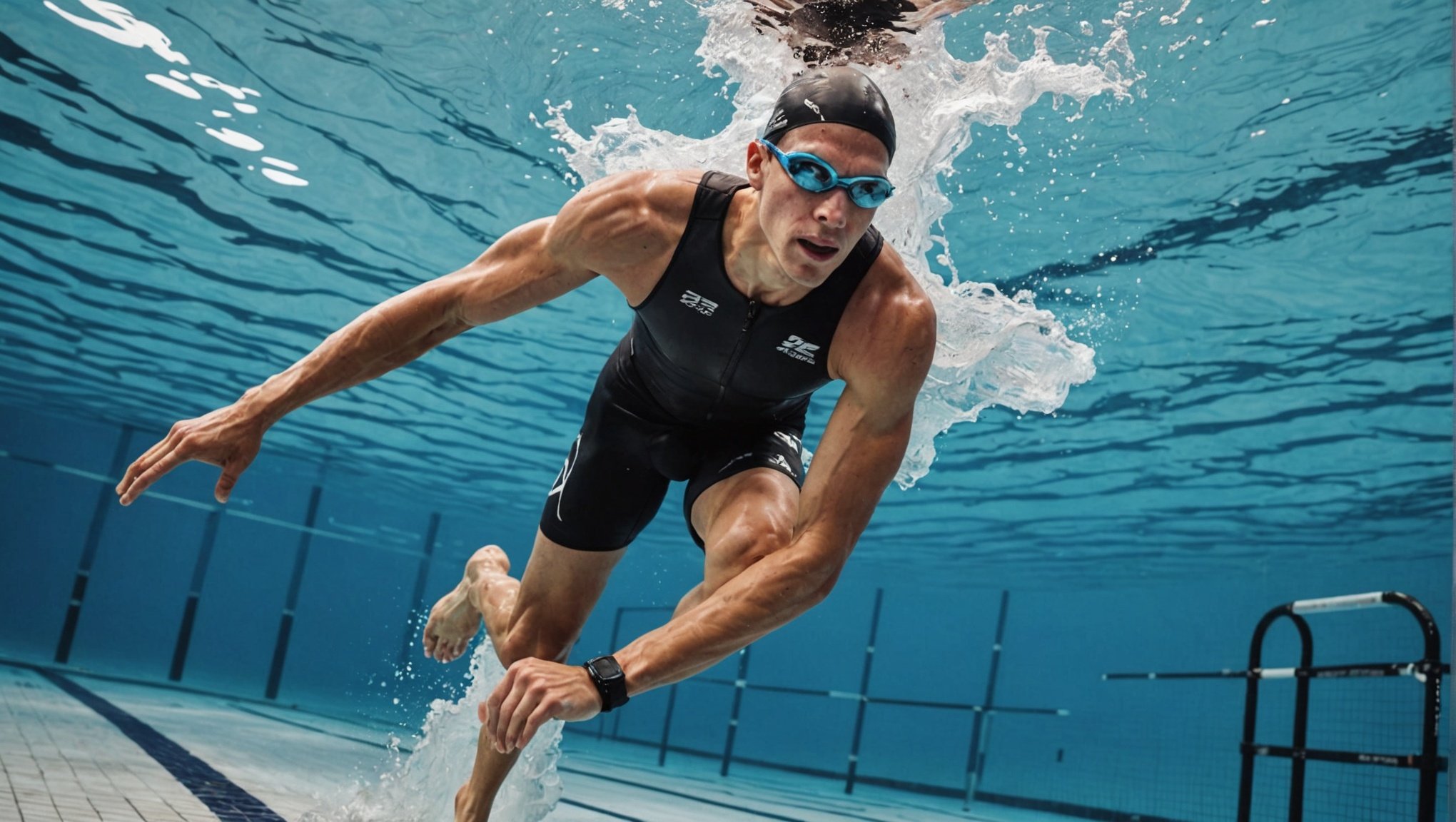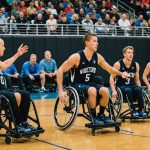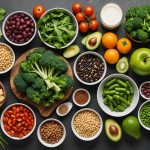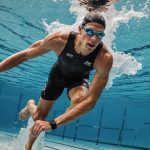Understanding the Nutritional Needs of Long-Distance Swimmers
Long-distance swimmers face unique nutritional needs due to the intense demands of endurance swimming. Understanding these needs is crucial for optimizing performance and recovery.
Energy requirements for long-distance swimming are significantly higher than for shorter events. Swimmers must consume enough calories to meet their body’s demands, providing necessary fuel for prolonged activity. As a swimmer, focus on your energy balance: the calories consumed should match those expended during training.
In the same genre : Top Strategies for UK Football Referees to Prevent Ankle Injuries: Effective Techniques You Need to Know
Carbohydrates are the primary source of fuel during endurance swimming, providing the energy needed to sustain performance. They are essential for maintaining glycogen levels, which are crucial for stamina. A diet rich in complex carbohydrates, such as whole grains and fruits, should be prioritized to match the swimmer’s energy output.
Proteins play a vital role in muscle repair and growth. Adequate protein intake supports recovery after strenuous sessions, reducing the risk of muscle damage and enhancing overall performance. Include lean sources like chicken, fish, or legumes to meet these nutritional needs.
Topic to read : Essential Mental Readiness Techniques for UK Archers Ahead of Competitions
Fats, though less immediate as an energy source, are crucial for long-distance swimmers, offering sustained energy. Additionally, micronutrients like vitamins and minerals are indispensable, aiding in better performance, reduced fatigue, and effective recovery.
Key Macronutrients for Endurance
Understanding the macronutrients essential for endurance is crucial for optimizing performance and recovery. These nutrients provide the energy sources the body needs during prolonged physical activities.
Carbohydrates as Fuel
Carbohydrates are the primary fuel source for endurance activities. They are quickly broken down into glucose, which the body uses for immediate energy. It’s vital to maintain adequate glycogen stores in muscles and liver to ensure sustained energy levels. Consuming carbohydrates before and during intense activities can help delay fatigue and improve performance. Including complex carbohydrates like whole grains, fruits, and vegetables in your diet can provide sustained energy release.
Optimal Protein Intake
Protein plays a key role in muscle repair and growth. For optimal endurance performance, it’s important to consider the timing of protein intake. Consuming protein shortly after exercise supports muscle recovery and reduces muscle damage. Incorporating lean protein sources, such as chicken, fish, beans, and legumes, can fulfill your body’s protein requirements.
Healthy Fats for Endurance
Fats are essential for endurance athletes as a secondary energy source. Healthy fats provide sustained energy, support cell function, and enhance endurance performance. Integrating sources of healthy fats like avocados, nuts, seeds, and olive oil into the UK diet can promote cardiovascular health and improve stamina.
Hydration Strategies for Swimmers
Maintaining optimal hydration is crucial for swimmers to perform at their best. Proper fluid intake before, during, and after swimming can significantly impact endurance and recovery.
Before hitting the pool, it’s essential to start with adequate fluid intake to prevent dehydration. Swimmers should consider beverages enriched with electrolytes, as these can help maintain the balance lost through sweat and exertion. Electrolyte balance is crucial as it regulates muscle function, critical to preventing cramps and fatigue during swimming sessions.
During a workout, sipping on an electrolyte-rich drink can extend performance by replenishing essential minerals. Drinks containing sodium, potassium, and magnesium are particularly beneficial to sustain electrolyte balance.
After swimming, restoring fluids lost is as important as maintaining proper fluid intake showcased before and during the activity. Post-swim hydration should include drinks that replenish not just water but also lost electrolytes to assist in recovery and muscle repair.
Recognising the signs of dehydration, such as dry mouth, fatigue, or dark urine, is vital for swimmers to adjust their hydration strategies promptly. Understanding personal needs and monitoring these signs can help in maintaining optimal physical condition.
Meal Planning for Long-Distance Training
Proper meal planning is essential for athletes engaged in long-distance training. It supports performance and recovery while ensuring the body receives essential nutrients.
Pre-Workout Snacks
Searching for the perfect pre-workout meals? Look for snacks that provide a balanced mix of carbohydrates and protein to fuel your training sessions. This blend helps maintain energy levels while providing the necessary endurance for lengthy workouts. Consider options like a banana with peanut butter or a small smoothie with added protein powder. These choices are designed to fuel your body efficiently without weighing you down.
Ideal Post-Workout Recovery Meals
After a rigorous training session, post-workout nutrition is critical for recovery. Meals focusing on protein and carbohydrates support muscle repair and glycogen replenishment. Opt for lean proteins such as chicken or tofu paired with complex carbohydrates like brown rice or quinoa. Adding a side of vegetables like spinach or broccoli can enhance nutrient intake and recovery efficiency.
Weekly Meal Prep Tips
Efficient meal planning ensures consistent nutrition. For a busy schedule, batch-cooking meals on weekends can be a game-changer. Prepare large portions of grains, proteins like grilled chicken, and roasted vegetables. Store them in individual containers for convenience. This strategy saves time while ensuring a nutritious, varied diet throughout the week.
Local UK Food Options for Endurance Nutrition
Exploring UK food sources offers swimmers the opportunity to enhance their diets with nutritional yet sustainable options. Local nutrition is not only beneficial for health but also supports the environment by reducing food miles. In the UK, a vast array of fruits and vegetables are available that are specifically beneficial for endurance athletes like swimmers. Apples, for example, are abundant in vitamins and make a great energy-boosting snack.
Incorporating seasonal foods into your diet is crucial. These foods are fresher, perhaps more nutrient-rich, and often more economically priced. For swimmers, knowing what fruits and vegetables are in season can help plan meals that aid performance. During winter months, root vegetables like parsnips and carrots are in season and can be incorporated into stews and salads, providing essential nutrients for recovery and stamina.
In terms of meals, traditional UK dishes such as shepherd’s pie can be adjusted to meet the high-caloric needs of swimmers. Including ingredients like lean meats and legumes can supply necessary proteins and carbohydrates. By focusing on seasonal and local foods, swimmers can build a sustainable diet that enhances performance while respecting the environment.
Expert Insights and Testimonials
Understanding the relationship between nutrition and performance is crucial for swimmers. We’ve gathered insights from nutritionists and swimmer testimonials to uncover the best practices for improving endurance and recovery in long-distance swimming.
Interviews with Nutritionists
Prominent nutritionists emphasise the importance of balanced diets tailored to individual needs. They recommend a mixture of carbohydrates, proteins, and fats to fuel training. For instance, increasing complex carbohydrates aids in maintaining energy levels during prolonged sessions. Proteins are essential for muscle repair, while healthy fats provide a sustained energy source.
Personal Experiences from Long-Distance Swimmers
Swimmers share that adopting these expert-recommended nutrition strategies have significantly boosted their endurance and recovery times. One swimmer recalled how a strategic increase in protein intake decreased muscle soreness. Another testimonial highlighted that integrating more omega-3-rich foods improved their stamina.
Common Mistakes in Nutrition
Despite solid advice, some athletes make nutritional blunders. Common errors include over-relying on one macronutrient or neglecting hydration. Such mistakes often lead to decreased performance and increased fatigue. Nutritionists underscore the necessity of a balanced diet and adequate water intake to avoid these pitfalls and optimise performance.
Practical Tips for Implementing Nutrition Strategies
Implementing effective nutrition strategies doesn’t have to be complicated. Here are some practical tips to seamlessly incorporate a healthier diet into your daily life.
Start by setting realistic nutrition goals. Identify small, achievable changes, like increasing your vegetable intake by adding a side salad to your lunch or swapping sugary drinks for water. Establishing these stepping stones creates a sustainable path to improved health.
Incorporating recommended foods can be simplified with a few everyday strategies. For instance, create a meal plan at the beginning of each week, focusing on variety and balance. Incorporate more fruits and vegetables by blending smoothies for breakfast or preparing vegetable-rich soups or stews for dinner.
Don’t forget to explore resources for ongoing education on nutrition. Numerous platforms offer reliable guidance on sports nutrition. Books, podcasts, or online courses can enrich your understanding and keep you motivated. Remember, continuous learning is crucial when adapting dietary habits, ensuring you stay informed about the best practices.
By implementing these nutrition strategies, integrating healthy habits into daily life becomes less daunting and more achievable. With patience and persistence, anyone can succeed in transforming their nutrition approach.






